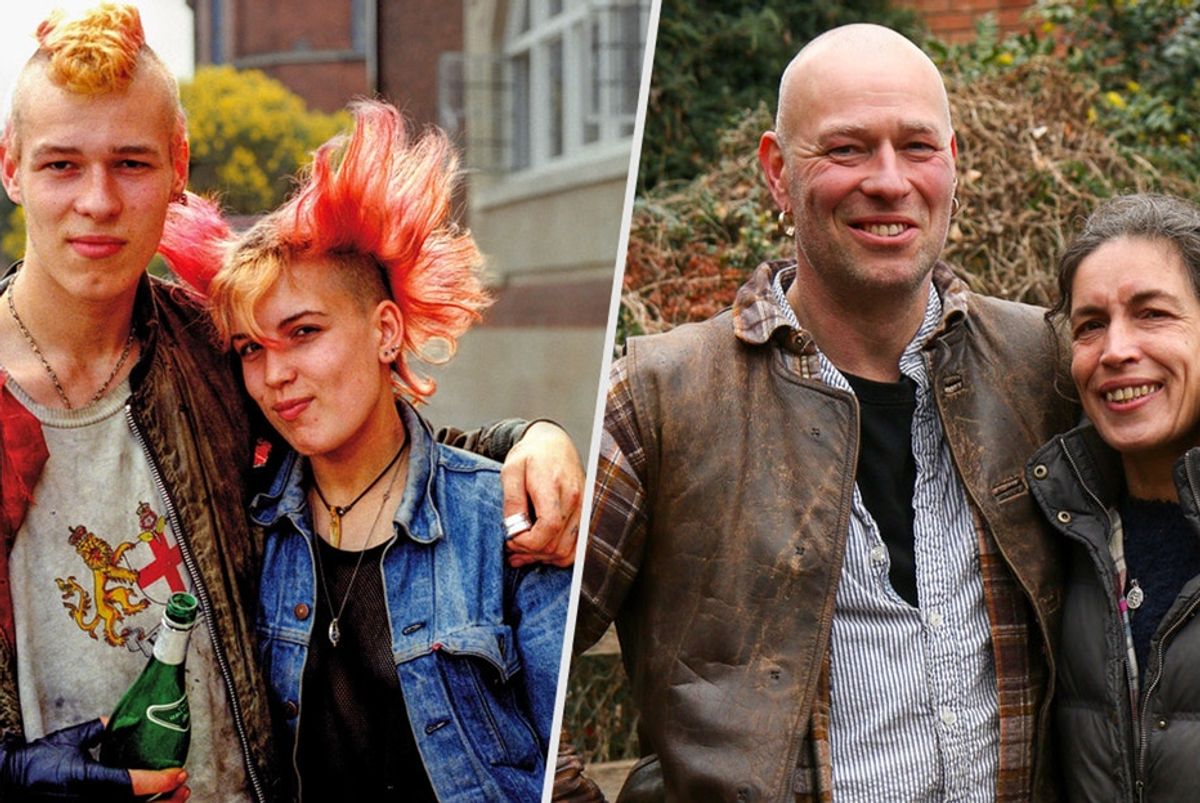There are over 30 years between these amazing before-and-after photos.
"It's important for me for my photography to make people smile."

Before and after photos separated by 30 years.
Chris Porsz was tired of studying sociology.
As a university student in the 1970s, he found the talk of economics and statistics completely mind-numbing. So instead, he says, he roamed the streets of his hometown of Peterborough, England, with a camera in hand, snapping pictures of the people he met and listening to their stories. To him, it was a far better way to understand the world.
He always looked for the most eccentric people he could find, anyone who stood out from the crowd. Sometimes he'd snap a single picture of that person and walk away. Other times he'd have lengthy conversations with these strangers.
But eventually, life moved on and so did he. He fell out of love with photography. "Those pictures collected dust for 25 years," he says.
Then, a few years ago, Porsz found those 30- to 40-year-old photos and sent them to be printed in his local newspaper.

Chris Porsz and his camera.
All photos by Chris Porsz/REX/Shutterstock.
And remarkably, people started recognizing much younger versions of themselves in his shots. "There was this lightbulb moment," he says of the first time someone wrote to him about one of his photos.
Eventually, he became curious about the people he'd photographed all those years ago, and he decided he'd try to find some of them. It wouldn't be easy — the photos were taken a long time ago, and Porsz didn't have names or contact information for many of the people in them.
But he did find some of them, sometimes in extraordinary ways. "Some were absolute million-to-one coincidences," he says.
Like the time he went out on a call (he's a parademic these days) at 3 a.m., and the man he was there to treat recognized him as the photographer who'd snapped his picture all those years ago. On another call, he asked a local shopkeeper if he recognized any of the subjects in the photos. He did.
Once Porsz began posting about the project online — he calls it "Reunions" — it became easier and easier to reconnect with his former subjects.
Many were eager to recreate the old shots as best they could, like Layla Gordon, who Porsz originally photographed drinking milk in 1983.

The child version drinking milk.
All photos by Chris Porsz/REX/Shutterstock.

The adult enjoys milk too.
All photos by Chris Porsz/REX/Shutterstock.
Others groups, like these schoolgirls, had fallen out of touch. "Reunions," fittingly enough, brought them back together.

Schoolgirls pose for a photo.
All photos by Chris Porsz/REX/Shutterstock.

The adult versions find time for a group photo.
All photos by Chris Porsz/REX/Shutterstock.
Porsz says that his subjects, like this wild-haired couple, were strangers to him 30 years ago. Now he considers many of them friends.

Pink colored hair and mohawks.
All photos by Chris Porsz/REX/Shutterstock.

The color has moved to the sleeves.
All photos by Chris Porsz/REX/Shutterstock.
In all, Porsz has collected over 130 before-and-afters in his new book.
The response to Porsz's work has been more than he ever imagined.
He's personally heard from people all over the world who've been inspired by his project and want to try to recreate it themselves. But beyond that, he just hopes it brings a little warmth and happiness to the people who see it.
"It's important for me for my photography to make people smile," he says. "Because there is so much sadness in the world."
And while the project is finished for now, don't count out the possibility of "Reunions Part 2" somewhere down the line.
"I'd love to meet these guys in 2046 when I'm 94 years old," Porsz says.
This article originally appeared on 11.30.16

